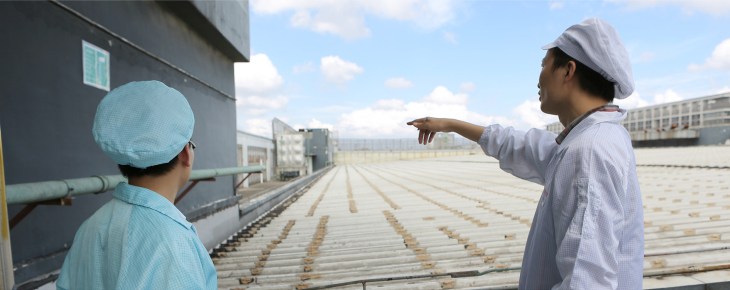Back in 2012, Apple signed up for the Fair Labor Association’s voluntary audits in order to bring more transparency to its production practices and supplier partnerships. Today, the FLA released a new report, which contains an audit of two facilities operated by supply partner Quanta in Changshu and Shanghai.
The results of the report capture a snapshot of the state of affairs at these supplier factories in August 2013, and find that there’s a decent amount of non-compliance at both facilities, ranging from problems with recruitment fees being charged by employment brokers (especially problematic at the Shanghai facility), to a situation where 62 percent of employees at the Changshu facility failed to receive a mandatory rest day at least once over a three-month period covering the fourth quarter of 2012 required by the FLA Code during busy periods, i.e. when key devices are in production.
As part of its role, the FLA has made recommendations to Apple about how to improve upon these conditions, particularly in areas where suppliers fall short of either local laws or the FLA’s own independently maintained Code of Conduct – and as the findings detail a state of affairs that is now a year old, Apple has pointed out in a statement provided to TechCrunch that it has already taken action to address some of the issues contained therein.
Apple’s statement in full:
Our suppliers must live up to the toughest standards in the industry if they want to keep doing business with Apple, which is the first and only technology company to be admitted to the Fair Labor Association. We are committed to providing safe and fair working conditions for everyone in our supply chain.
Last year we conducted 451 comprehensive, in-person audits deep into our supply chain so we could uncover problems and work with our suppliers to fix them. We track and report the weekly working hours for more than 1 million workers, and our 18-month Apple Supplier EHS Academy training program is raising the bar for environment, health and safety management in the industry.
The Quanta facilities inspected by the FLA last year were included in our 2014 Supplier Responsibility report, which we released in February. Our own experts have audited these sites 16 times, most recently last month.
In the year since the FLA’s visit, we have worked closely with Quanta to drive meaningful improvements in areas identified by both the FLA and Apple. Apple conducted four follow-up inspections on top of the annual audits of both facilities, to ensure the needed corrections are in place.
This year, through the end of July, Quanta has averaged 86 percent compliance with our 60-hour workweek. Excessive overtime is not in anyone’s best interest, and we will continue to work closely with Quanta and our other suppliers to prevent it.
Apple’s own Supplier Responsibility report also contains current information about its progress with supplier partners and partner facilities, and is current as of June of this year, including data from both FLA sources and Apple’s own audits.
Recently, Apple has stepped up its efforts to increase transparency and accountability around how it runs its business, even as it continues to prize secrecy when it comes to product pipeline. On Wednesday, for instance, it revealed a new initiative to eliminate the use of benzene and n-hexane in the final assembly process for their devices. They also launched a diversity report section of their web page, with the first edition revealing the gender and racial breakdown of their workforce.
Today’s Apple is a markedly different one from the company of years’ past, which wouldn’t even name suppliers or confirm them as such when listed elsewhere. CEO Tim Cook has repeatedly affirmed a commitment to greater transparency in Apple’s operations, and he appears to be backing up those claims with genuine action.
